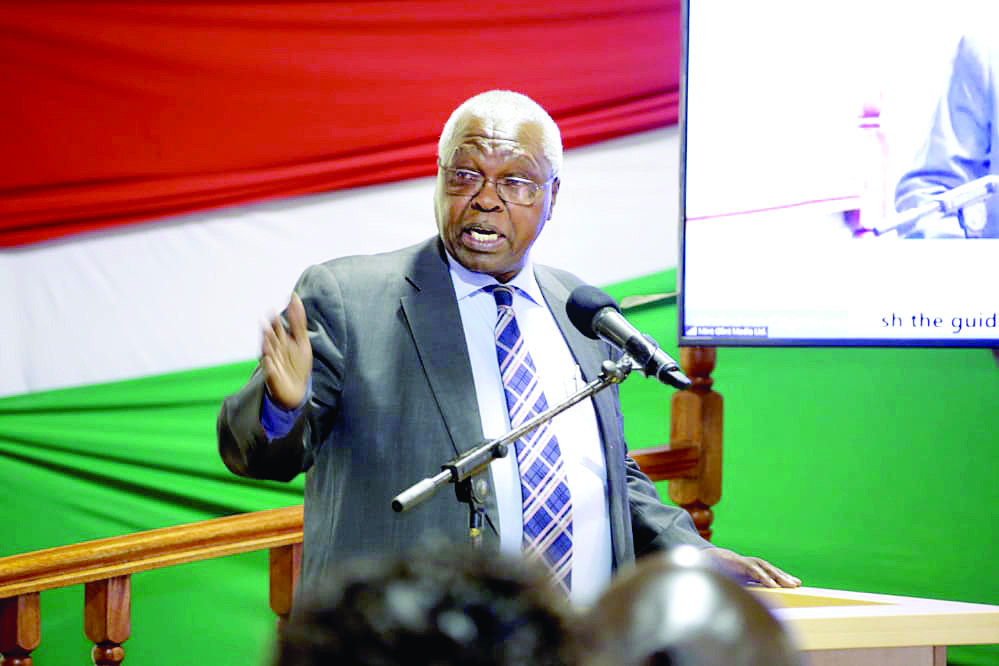Clean up bursary funds – reforms team
By Irene.Githinji, August 3, 2023The Presidential Working Party on Education Reforms (PWPER) has called for proper coordination and management of bursaries and scholarships.
In its report, the team led by Prof Raphael Munavu, says that while bursaries and scholarships complement government capitation, the sources are fragmented and uncoordinated and lack a clear selection criteria of beneficiaries.
According to the team, a majority of the funds are steeped in corruption, nepotism and tribalism, with undeserving, well-connected learners benefiting more than the deserving.
“There is need to coordinate management of bursaries and scholarships under the Kenya Basic Education Bursaries and Scholarship Council as a successor to Jomo Kenyatta Foundation,” the team proposed.
PWPER said the government had over the years provided scholarships, bursaries and grants to enhance access to education, retention and transition.
The Jomo Kenyatta Foundation (JKF) was established in 1968 to provide scholarships to vulnerable learners and improve access and transition to secondary education. At inception, funds were disbursed directly to schools.
In 2003, the Constituency Development Fund (CDF) was introduced to address challenges at the constituency level. CDF included bursaries at different levels, mainly secondary and tertiary.
The Elimu Scholarships Fund is another facility which seeks contributions from individual groups, corporations and foundations to cater for students with financial needs through scholarships.
In 2013, the Presidential Secondary Schools Bursary Scheme (PSSBS) was established to cater for the needs of orphaned children and vulnerable learners.
To complement government initiatives, private sector players assist bright but needy learners through scholarships.
Well-connected
Some of the private partners include Equity Group Foundation (EGF), KCB Foundation and Mastercard, Cooperative Bank, Safaricom and the East Africa Philanthropic Network and Rotary Clubs.
During a public participation session, PWPER said stakeholders complained of limited awareness of existence of bursaries and scholarships, beyond those provided at the constituency and ward levels.
Some beneficiaries do not know how to apply for the funds or lack information on what is available, adding to some students receive more than one.
“Bursary and scholarship schemes are characterised by corruption, nepotism and tribalism, with undeserving ‘well-connected households’ benefiting more than the deserving. Some bursary scholarships delay releasing awardees in line with their academic calendar, thus inconveniencing learners,” stakeholders said.
The stakeholders also said the bursary and scholarship schemes do not have adequate mechanisms to enable a follow-up of successful applicants and those who have been unsuccessful in order to ensure efficiency in the utilisation of the funds allocated to recipients.
They also raised concern that lack of clear guidelines and criteria on the management allows room for multiple allocations to undeserving recipients, with many cases of undeserving students benefitting from bursaries due to political connections and nepotism.
“There are various sources of funding available, but they remain fragmented and uncoordinated, leading to some students benefiting from multiple awards of scholarships and bursaries, leaving many other learners without any benefit from the schemes, whereby some learners are unable to access, participate, complete and transit to secondary education,” the report states.
Immediate implementation
When he received the report on Tuesday, President William Ruto said the education system must be inclusive and that no child should be left behind.
“You must remember we said that education must be inclusive. We must never leave any child behind. We are all aware that there are still many more of our children not in school for various reasons,” said Ruto.
He said the transformation of the national education system was underway and recommendations contained will be implemented immediately.
“We must now direct our attention to the implementation of the recommendations set out in the report. The relevant Ministries and Departments must quickly familiarise themselves with the report, and expeditiously.
“There is a lot to be done in terms of policy, legislative, organisational, strategic and administrative measures to actualise the recommendations,” the President said.
